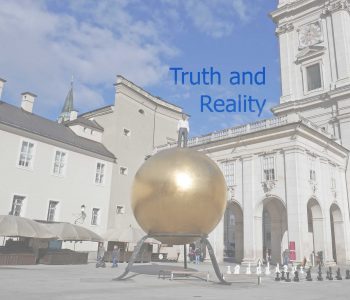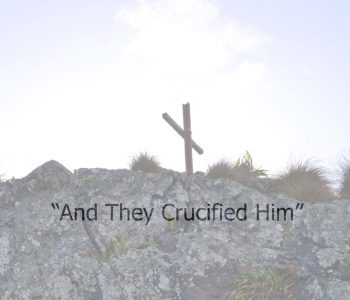 Other Authors
Other Authors
The Divine Ministry of Delay
One of the great dangers of life is that of losing sight of God’s great design in the details by which that design is worked out, and it has been well said that we entirely lose the value of any experience if we isolate it. That is, if you take your sorrow and regard it apart from the great designing love of God, if you take your losses, your temporary setbacks, your momentary depressions, and dwell upon these things as if they were the only experiences of God’s providence, and as if they were not related to the great central control of His love – you will entirely miss their value. It is that we may be saved from such peril that we are meditating together thus on some of God’s unlikely but never unkindly ministries.
With this brief recapitulation let me ask you to turn to the word which is the occasion of our thought this morning in regard to the Divine ministry of delay by which God oftentimes tests His people. I will ask you to turn to the words of Jeremiah the prophet, in the book of Lamentations, in the third chapter, at the twenty-fourth verse: “The Lord is my portion, saith my soul; therefore will I hope in him. The Lord is good unto them that wait for him, to the soul that seeketh him. It is good that a man should both hope and quietly wait for the salvation of the Lord.” It is especially on those last words that I want our meditation to be based: “It is good that a man should both hope and quietly wait for the salvation of the Lord.”
Let us frankly admit at the outset that one of the great difficulties of life with many of us is concerned with the fact that God sometimes seems to delay His answers to our prayers. The most perplexing problem of many a Christian life is just this: that God apparently does not answer, and apparently does not even heed much of our crying. By His grace our faith in Him has not been finally disturbed. By His grace this conflict has been carried on courageously in secret. Outside our own heart no one even suspects that there is such a conflict. But you know that there is, and I know that there is, and sometimes the only word that rises from our hearts when we come into God’s presence is almost the last word which came from the Saviour’s lips: “My God, why?” This is not the first question of the Christian life. Faith’s first question is usually “How?” There is a stage in Christian experience when we are constantly saying “How?” – “How can a man be born when he is old?” “How can these things be?” “How can this Man give us His flesh to eat?” “How are the dead raised up, and with what body do they come?” These are some of the first questions of the Christian life. But as we go on with God, as life deepens, as its necessities become heavier, its sorrows more acute, and our perceptions more alert also, the question which rises from the heart of many a disturbed and distressed believer is: “My God,” not “how?” but “WHY?” I have already suggested that what many of us are seeking at this time is not comfort, nor sympathy, nor even the lightening of our loads. We are seeking some explanation, some interpretation from God Himself as to what He is doing in these our lives. Some of us are distressed almost to the point of desertion – desertion of our own allegiance, and desertion of His colours, because He seems to delay, indeed almost to deny the things we ask Him.
Yet, I would remind you that there is nothing which the Word of God so amply encourages men to do as to pray. There are promises attached to prayer which do not attach to any other condition. There are riches which are covenanted to men as the result of prayer and waiting upon God, which they can obtain in no other way. And it is just because the promises with regard to prayer are so great, so high, so wide, that these delays of God perplex us, and we cry out this morning, “My God, why?” There are times in life when nothing but sheer belief in God’s goodness saves us from despair, when nothing but simple reliance upon God’s love, without any present evidence of it, can save us from hopelessness; when nothing but almost reckless faith in His omnipotent wisdom, will prevent us from sinking into positive moral apathy and spiritual lethargy. Therefore, it is my present endeavour to help some here to a recreation of that sheer belief, that simple reliance, and that reckless faith in God which trusts Him when His face is veiled, and they do not even feel the grip of His hand. Faber well sang:
“Thrice blest is he to whom is given
The instinct that can tell
That God is on the field, when He
Is most invisible.”
That is the instinct which may God grant every one of us to have in these days.
Now these words were spoken by the prophet Jeremiah in a day when the nation’s desire, its best desire, was perhaps never so evident. The people had begun to see the fulfilment of God’s promises and the working of His providence. Their foes were being pushed from their land, the beginnings of recultivation were taking place, and the broken-down altars of God were being rebuilt. But all was being done so slowly that they could not reconcile the slowness of God with the implicit assurances upon which their faith in Him rested. They were impatient and restive under His apparent inactivity. Faith saw God’s beginnings and, like the disciples of later days, “thought the kingdom must immediately appear!” There is a great deal to be said for the faith of a little child which cannot understand the reason of delay. But you will not misunderstand me when I say that there is a great deal more to be said for the faith of a grown man who has come to know that God has an entirely different scale for the measurement of time from those we commonly use. There is still more to be said for the faith of the man who is perfectly content to rest in the fact that a thousand years are as one day with Him, and one day as a thousand years. This was the faith of Jeremiah. He had looked into the depths of the Infinite God, and had seen that He was unhurried, and that His ways were the more certain because they were not the more obvious. So he waited calmly, and sought to renew courage and patience and hope in the people, just because these things were the expression of his own soul. Hence he says: “It is good for men that they are kept waiting, that they have to quietly hope for the salvation of God.”
You will readily understand that these words of his are of infinitely wider application than to the Israel of that day. I believe they are apposite to the case of every one of us here today who is perplexed because, for instance, the expected deliverance from sin in his own life does not come as he thought it would. Or the petition he offers for some good of which he conceives himself to be in great need is not granted. Or the loved one for whom he prays is not immediately converted, and though he goes on praying he has almost lost heart about it. Or the revival in his world for which he has conscientiously wrought to the very last ounce of his strength, does not seem to be even on the horizon. We want to know why this delay, and what the spiritual good of having quietly to wait and hope so long.
I am very sure that when the last word of human experience about prayer has been said, we are still in the presence of the greatest of all mysteries. The man who thinks he knows so much about prayer, that he can frame a philosophy of prayer, really confesses that he knows little indeed. How prayer liberates spiritual forces, who knows? Why God has ordained that men should wait upon Him, uniting their wills with His in order to exert the saving power of His grace both in their life and through them in the lives of others – who can say? With regard to this greatest of all subjects, there is really nothing further to be said than that which Paul said about all knowledge of God – “We know in part, and we prophesy in part.” But, thank God, we do know! What we know we know with a certainty which nothing can shake. But we only know in part. Therefore they are mere suggestions that I venture to offer you today, suggestions which have come with some degree of light and encouragement to my own heart in regard to this assertion – that it is good for a man to wait and hope for the salvation of God.
It is almost unnecessary to say that there is no thought in this word of any man having to wait until God is willing to bestow upon him the primary gifts of pardon and peace and forgiveness, the salvation which is His free gift in Jesus Christ. The sinner who cries for pardon, the weary and heavy-laden who ask for rest of heart, the lonely who seek the fellowship of love, are never kept waiting for the fulfilment of their desires. The prodigal is welcomed before he utters his prepared confession. The sinking man who cries “Lord, save me”, is at once conscious of being grasped by the Hand of power. The Evangel of Christ bears the ageless superscription that “now is the day of salvation”. In this respect, indeed, it is never God who keeps men waiting, but men who keep Him waiting. But, in regard to that aspect of His mercy which is concerned with the strain of our present discipline, with the anxiety of future uncertainty, with the relief of immediate discomfort, with the weariness of unremoved burdens – it is in that realm of life that we want to know why God delays. Nor is it unnatural that we should be impatient.
For instance, here is a good man who reads that “All things work together for good to them that love God”, but who sees nothing in his life today but chaos. His affairs have been completely ruined. His home has been invaded by sorrow and disappointment, until the nerves of all are on edge, and no one knows with certainty what an hour is going to bring forth of fresh calamity. That man has rested upon that Divine Word with implicit confidence in its truth, but the delay in realising its fulfilment has almost staggered his faith. Is it to be wondered at that he should be asking today what it all means?
There is a young man yonder, and there has been illumined to his soul’s vision this word: “In all things we are more than conquerors through Him that loved us.” And yet he has been defeated even since he came to Keswick, and this morning his face is toward the ground, and not toward the Lord. He says, “What does it mean? I have rested my whole weight, as I believe, upon this promise of God, and my Lord delays His coming in power to me. What does it mean?”
There is the busy worker – I have met him since I came to Keswick – who has come from some far-off missionary field, in which for the last ten years he has been pouring out his life, seeking to live the life of a citizen of the Kingdom of God resting upon that word – “My word shall not return unto Me void, but shall accomplish that which I please.” And he confesses today that he has seen it accomplish hardly anything. What does it mean?
There is the great promise upon which every member of Christ’s Church just now is building more solidly than ever a temple of hope: “Behold, I come quickly.” It seems as though Christ was never so much needed as He is today. It seems as though international relationship can never again be restored as we have known it. It seems as though the scattered units of Christ’s Church can never be gathered together again in one, save by His coming. And the Church cries out: “Amen. Come quickly, Lord Jesus.” But there is not a sign of His coming. What do these delays of God mean?
I am going to suggest three things, and they are mere suggestions; but may they bring light to you, as they have brought to me in past days. The first thing I want to say about God’s delays is this: It is only by enforced waiting upon Him that we come to know God with that knowledge which is the foundation of all character. I use the word ENFORCED waiting upon God, because it is only by being forced to wait upon God that some of us ever do wait on Him. We are naturally impatient, we are naturally impulsive, we naturally chafe at anything like slowness, and God, by withholding the answer for which we have looked, keeps us at His feet in order that we may come to know Him. He is infinitely more concerned in the making and remaking of our lives than in the gratifying of our minds. He is infinitely more concerned in making us men and women of His own pattern, and to deepen His life in our souls, than to gratify some of the desires which we often express in unconsidered prayer. For we cannot come to know God, and inferentially we cannot come to know ourselves, in an hour. God’s delays do not indicate any caprice on His part, but rather His concern and compassion for us. They are directed toward saving us from hurrying away from His presence before the lessons of His grace have been more than mentally received. God is preparing us, by keeping us waiting upon Him, worthily to receive, to interpret, and then to use the gifts He will yet give in answer to prayer and in fulfilment of His word.
I constantly see tourist visitors to London rushing about from Park to Palace, doing what they call the “sights”. And after a fevered week they go back home thinking they know London. But do they? One of Ruskin’s students once said to him, on returning from a first Italian visit: “Sir, immediately I entered the Gallery at Florence, I knew in a moment what you had always impressed upon us as the supremacy of Botticelli.” Ruskin’s reply was, somewhat cutting. He said: “Oh, you found that out in a moment? Well, it took me twenty-two years to discover it!” And there are a great many people who think they know God in the light of a single experience! We are kept waiting upon Him that we may become of the number of those who really do know their God, and who consequently are empowered to do exploits. God is making us; do not let us be impatient under the process. God is making us; do not let impatience and impetuosity take us, therefore, from under the hand of the Master Workman. He is eliminating the flaws, and remaking the marred vessels. The two qualities which we need most – endurance and radiance – are not imparted to any man in a single hour. God keeps us waiting that in His presence, beholding His glory, we may be changed into the same image from glory unto glory.
The second thing I want to say is this. Many of our prayers must be passed through the refining medium of God’s wisdom, that is, of God’s love, many of them must be edited by God before they are answered. For well-intentioned prayer is not always well-informed. Like those who made requests of the Saviour, God often has to say to His children, “Ye know not what ye ask”. If some of our prayers were immediately answered, the consequence would be almost certain moral and spiritual disaster. Our prayers have to be passed I say, through the refining medium of God’s wisdom, sometimes with regard to their motive. “Ye have not because ye ask amiss.” There are men and women, for instance, who pray for power while their real objective is pre-eminence. What they really mean by power is that which will make them prominent in His service. When our motives are altogether unworthy of the words we express, we have to be kept waiting until God turns upon us the searchlight of His love, and learning the untrustworthiness of our own impulses, we yield us to that gracious Spirit who makes intercession in us according to the will of God.
Not only in regard to the MOTIVE, but in regard also to the content of our prayers, Christ has to say again and again, “Can ye drink of the cup that I drink of; are ye able to be baptized with the baptism wherewith I am baptized?” For often we know not what we ask, and hence God’s delay in response. I have seen children – we have all seen them – who have been utterly spoiled by the weak good-nature of parents who gave them at once everything they wanted. For human love may be entirely lacking in wisdom. But the love and wisdom of God are one. When He keeps us waiting for secondary mercies, it is in order to make us know the value of the primary and spiritual. We have to learn that God’s “No” is just as much an answer as God’s “Yes”. We have to learn that God’s “Not yet” is just as truly an expression of Divine love as God’s “Immediately”. The day will come to every one of us when we shall know that God’s silence was in reality His most loving speech to us. For we shall see that while seemingly inactive God has all the time been working in us, bringing us into moral correspondence with His will, which alone capacitates men to receive His gifts.
Well do I recollect, some years ago, in the city of Dublin, a man coming into the vestry-room of a church and saying: “Sir, I want to thank you for that message about God’s love. I believe every word of it now, but I did not six months ago.” His eyes filled with tears; and as I said: “What does it mean, my brother?” He went on: “Six months ago my home was bright and happy, and the shadow fell. I prayed earnestly that God would save my wife and our infant. But He took them; and I have come to know that He took them only in order to bring me back to Himself, from whom I had wandered.” God’s silence in that man’s life was His richest and kindest speech. And others of us have found this to be true also; and more of us will find it so ere these dark days in which we live have passed away.
The things we try to get rid of by prayer are often the very things we can least afford to lose. Some of those things we call burdens, of which we try to get rid in the Sanctuary, are the things that God has placed upon us for the steadying of life and the guiding of our energies into channels which otherwise we should overlook and miss. Paul learnt that there was something infinitely better than the removal of the thorn-pain – infinitely better! Thrice he besought the Lord to remove it – with what interval between those prayers we know not. But surely Paul, like the rest of us, was perplexed at God’s delay. And he ultimately found that God was preparing something far better than the extraction of the thing which caused a throbbing wound – “My grace is sufficient for thee.” If he had not had the thorn-pain, like the nightingale which is said to sing sweetest when its breast is pierced, he had never learned the song: “Most gladly will I glory in my infirmities, that the power of Christ may rest upon me!” We learn, as we are kept waiting at His feet, that the cord which we would have had God cut, He disentangles, and so saves for purposes of His service. God’s ways are always justified of His children, if they will patiently tarry His leisure.
Ere I pass on to the third and last suggestion I have to make, may I say that surely we get an illustration of all this in the burden of prayer which is increasingly descending upon us for our nation. There are not a few of us who are perplexed that God has not already intervened to stay this terrible conflict. We look out from this place of quiet rest, and see across the Channel the sons of God being butchered upon the fields of France and Belgium; and we cry to God to give victory to the cause which is inherently right, and about which we have no shame. Yet He does not do so. After a whole year, and despite the sacrifice of thousands of precious lives, the battle-line is drawn substantially as it was at first. Why does God not put forth His power through our Forces, and by scattering the nations that delight in war bring this unspeakable strife to an end? Why have we no answer back from Heaven that our cry is heard? Why does He delay His coming when by one word He could end the whole conflict? Ah! it is not that God cannot, nor that He will not; but that an immediate victory for our land might only mean a revival, in the basest form, of our national sins. As a nation we are far from being morally ready for victory, for there are few signs in our common life that we have learned and taken to heart the lessons of this chastisement. That is why God is keeping our nation waiting. We have to be brought infinitely lower yet. We have to learn yet what the law of God stands for. We have to learn yet what the hideousness of sin in a man or nation means. We have to learn that sin brings pain and bloodshedding to man, as it brought pain and bloodshedding to God. Then when the nation is morally prepared and renewed I believe that victory will not be delayed by an hour. But it will not come one hour sooner. Hence the necessity of our quietly waiting for the salvation of God. Though remember, in the last analysis, it is not He who delays the answer to our prayer for victory. It is we who delay Him.* (*[footnote] Spoken in 1915 during World War I.)
The third thing I want to say is this. Faith can only be trained by being tested. As a man’s muscles are only hardened by exercise, so his faith only becomes strong and ultimately invincible by being subjected to the discipline of strain. For until it accepts the will of God, not under compulsion, nor because there is no alternative, but by free choice and glad surrender, faith is lacking in essential quality. But when we are unmoved by the fact that we are kept waiting, calmly conscious that God’s glory is intimately bound up with our lives and prayers, and content that if He can afford to wait, so too can we, one of life’s greatest lessons has been learnt. For faith reaches its triumph only when its exercise ceases to be a deliberate activity and becomes an instinctive attitude.
Sometimes we learn this by our own impetuous efforts to hurry God. There are two conspicuous examples of this. Do you remember Moses and his undisciplined effort at the deliverance of his people? How disastrously it ended for him! God had to take him into the schoolhouse of the desert and keep him there for many a weary year. By his impetuosity he had embarrassed God; and so, too, do many of us. Do you remember Abraham with a wonderful promise to support him, with a vision so great that it staggered him, attempting to expedite God’s purpose? You know the dark story of Hagar and Ishmael, and all that it afterward led to. Sometimes God likewise delays the promises of His faithfulness in order that we too may learn the utter futility of our every effort, and all the sweat of our souls, apart from Him. For remember that the faith of God must be vindicated in us before it can be verified through us, and before we can be His effective messengers to the world.
One last word. There is nothing in common between quiet waiting upon God and lethargic indolence. We have known those who excuse their non-participation in the enterprises of Christ’s Church because of this necessity of quiet waiting on God. Let me say that there is no greater mistake than to wait for subjective manifestations and to neglect objective opportunities. True waiting upon God expresses itself in the expenditure of every energy of the soul at the clear directions for whose interpretation we do not need to wait an hour. Oh, the supine folly of the man who in these days of tremendous opportunity is content to “wait upon God” to open doors, to “wait upon God” to enlarge opportunities, to “wait upon God” to organise success and influence for him, while he himself does nothing in the way of sacrifice – of giving himself, of losing his life, for the Kingdom’s sake! God does not co-operate with dreamers. We cannot live in fellowship with God and let evil stalk unchallenged, by neglecting the wide-open doors of the world which call to our faith and our loyalty.
I cannot forget that God did once say to His people: “Stand still, and see the salvation of God.” But I also remember that that word was given to men and women, a great host, who were walking in implicit obedience to His leadership, and who in that pathway had come up against the impassable. There are times in life when God says these words to us, but only when, like Israel, we are walking in the light of His will.
“We are not here to play, to dream, to drift;
We have hard work to do, and loads to lift;
Shun not the struggle! face it! ‘Tis God’s gift.
Say not, ‘The days are evil! Who’s to blame?’
And fold the hands, and acquiesce – oh, shame!
Stand up, speak out, act bravely in God’s Name.
It matters not how deep entrenched the wrong,
How hard the battle goes, the day how long;
Fight on! fight on! tomorrow comes the song!”
As we wait upon God in this energy of implicit obedience to Him, He will vindicate all His delays. He will do it as we stand, like men who wait for their Lord, doing His will to the very utmost of our power, knowing that when He comes He will perfect that which concerns us; pushing the battle to the gate, in the confidence that at the strategic moment He will bring up reinforcements which shall mean the final factor in victory, quietly hoping for that we see not; saying to our souls again, and yet again, “We see not yet all things put under Him, we see not yet the fulfilment of our every desire; but we see Jesus crowned. Blessed be His Name for ever!”
Published in the magazine “A Witness and a Testimony” in September-October 1969.



















